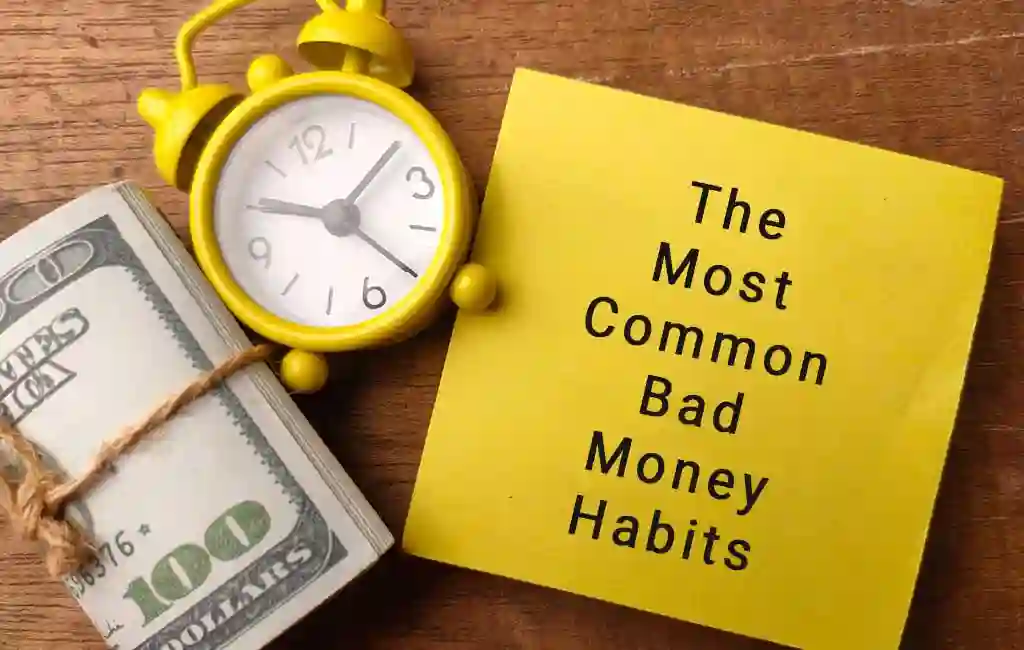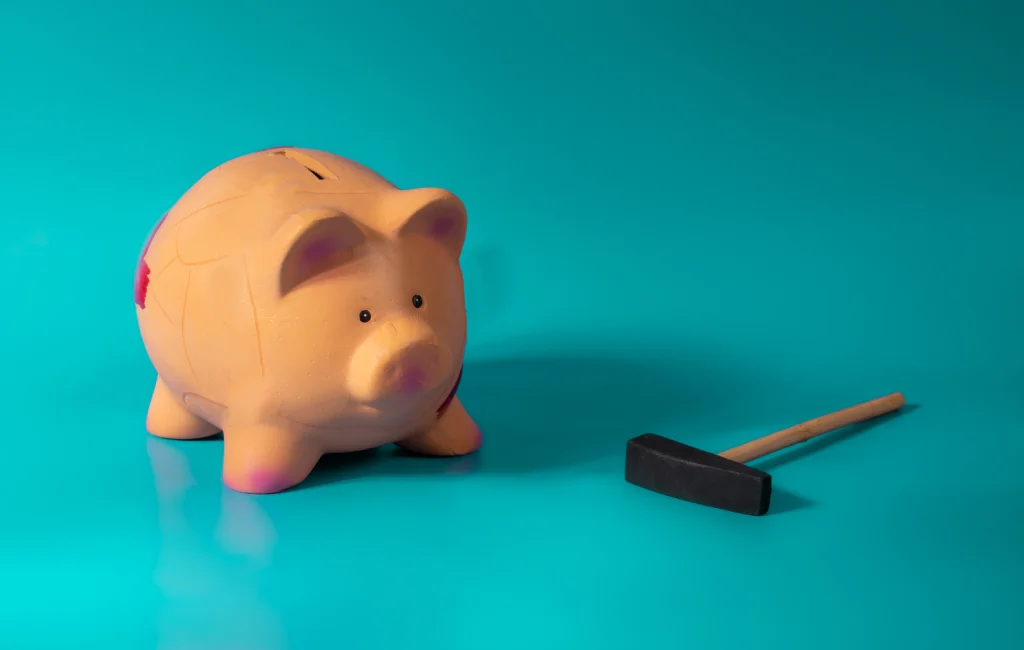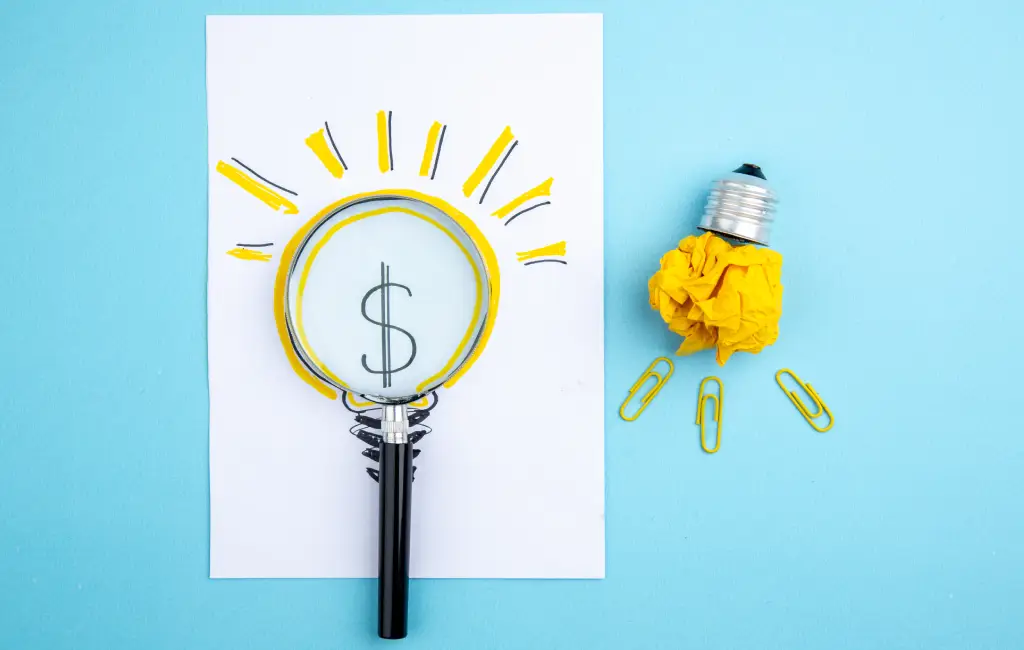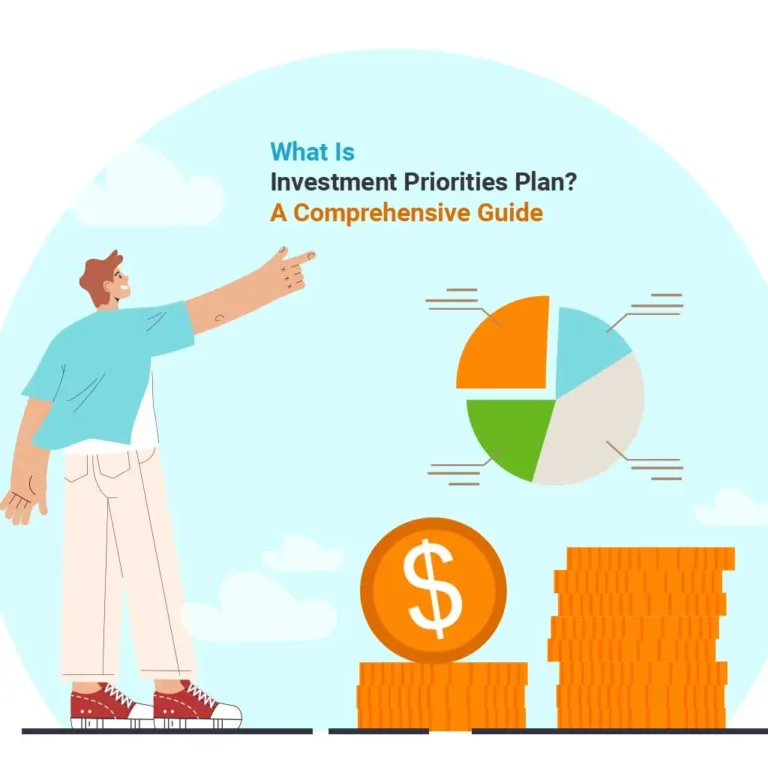Financial responsibility plays a critical role in our lives, as it fuels our goals, secures our future, and gives us the freedom to make choices. Cultivating good money habits is vital for financial stability and growth, yet many individuals grapple with financial behaviors that prevent them from realizing their full economic potential.
One way to foster healthier financial behavior is by first identifying the most common bad money habits that often go unnoticed, undermining our financial health.

Today, we delve into a topic that impacts us all: The 16 Most Common Bad Money Habits and How to Break Them. From impulse buying to neglecting investment opportunities, these habits, while common, can be detrimental to our financial well-being. By understanding these habits, their implications, and how to combat them, we can lay the foundation for better financial decisions and a more secure financial future.
Let’s take a step towards financial literacy and empowerment by exploring these common money pitfalls and learning how to sidestep them.
Recognizing Common Bad Money Habits
Recognizing and addressing our poor financial habits is the first stride toward financial freedom. Often, these bad habits operate in the background, subtly influencing our daily decisions and long-term financial trajectory. They gradually compromise our financial health, creating a ripple effect that can lead to debt, inadequate savings, and financial stress. Hence, acknowledging these habits is pivotal in rerouting our financial journey toward stability and growth.
As we explore the most common bad money habits, we will introduce you to 16 habits that are notoriously detrimental to financial health. These habits range from succumbing to impulse buying and neglecting to budget to overlooking investment opportunities and living paycheck to paycheck. Some patterns, like avoiding financial education and falling for financial scams, might even surprise you with their subtle yet profound impact on your financial wellness.
The 16 Most Common Bad Money Habits and How to Break Them
Let’s delve into the most common bad money habits that may be standing in your way of financial stability. Understanding these most common bad money habits is the first step; the next is breaking them. Here, we will cover everything you need to know to identify these bad habits and put a stop to them for good.
1. Impulse Buying
The habit of buying on a whim can derail your budget and lead to the accumulation of unnecessary debt. To counter this, pause before you make a purchase. Question its necessity and whether it fits within your budget. Implementing shopping lists and a 24-hour waiting period for non-essential items can also help control impulse buying.
2. Failing to Budget
Not having a clear budget often leads to overspending. To break this habit, start by meticulously tracking your income and expenses for a month. This provides insight into your spending patterns, helping you create a realistic budget that covers essentials, contributes to savings, and leaves some room for discretionary spending.

3. Not Saving for Retirement
The mistake of ignoring retirement savings can lead to financial stress during your golden years. Begin by saving a small portion of your income for retirement, no matter how small. If your employer offers a matched retirement fund, be sure to take full advantage of it. Regular contributions, however small, can add up over time, thanks to the power of compound interest.
4. Paying Only the Minimum on Credit Cards
Paying only the minimum due leads to interest accruing and effectively increases the amount of your debt. To mitigate this, aim to pay off your full balance each month. If this isn’t feasible, strive to pay more than the minimum amount to reduce the interest that accrues.
5. Not Having an Emergency Fund
An emergency fund is a financial safety net for unexpected expenses. If you don’t have one, start by setting aside a small amount from each pay period. Aim to build an emergency fund that can cover at least 3-6 months of living expenses. This can provide peace of mind and help avoid unnecessary debt.
6. Overspending on Non-essentials
Excessive spending on non-essential items like luxury goods and dining out can compromise your ability to save and invest. To curtail this, differentiate between your needs and wants. Allocate a small portion of your budget for non-essentials, and make sure to stick to this limit.
7. Avoiding Financial Education
Ignorance is not bliss when it comes to finance. Start reading financial blogs, books, and consider taking online courses to improve your financial literacy. Being knowledgeable about personal finance can result in better decision-making and protect you from financial pitfalls.

8. Living Paycheck to Paycheck
This habit can severely restrict your financial freedom and leaves no room for savings. To break this cycle, aim to reduce expenses where possible and look for opportunities to increase your income. Creating a realistic budget and building an emergency fund can also contribute to breaking this habit.
9. Ignoring Your Financial Health
Regularly review your financial situation. Ensure you are checking your bank statements, tracking your expenses, and monitoring your credit score. Neglecting these tasks can lead to overlooked expenses, unpaid debts, and missed opportunities for financial improvement.
10. Neglecting to Invest
Neglecting to invest can cause you to miss out on potential earnings. To start investing, research various investment opportunities and consider starting small. Working with a financial advisor can be beneficial if you’re unsure about where to start. The sooner you start investing, the more you can benefit from compound interest.
11. Not Tracking Expenses
Without keeping track of expenses, it’s easy to lose sight of where your money is going. Use a spreadsheet or budgeting app to record all expenses. This practice can provide a clear picture of your spending habits, helping to identify areas where you can cut back.
12. Delaying Bill Payments
Late bill payments can result in late fees, higher interest rates, and a negative impact on your credit score. Set up automatic payments or reminders to ensure your bills are paid on time.
13. Falling for Financial Scams
Falling prey to scams can lead to significant financial loss. Protect yourself by staying informed about common financial scams. Always verify the credibility of an investment or financial opportunity before investing.
14. Taking on High-Interest Debt
High-interest debt can quickly become unmanageable. Aim to avoid high-interest debt like payday loans or credit card debt. If you’re already in high-interest debt, prioritize paying it off. For necessary loans, always seek the lowest interest rate possible.
15. Not Negotiating Salaries or Bills
Not negotiating salaries can result in lower lifetime earnings. Similarly, accepting first offers on bills can lead to overspending. Always do your research, and don’t hesitate to negotiate your salary or dispute questionable charges on your bills.

16. Not Having Financial Goals
Without clear financial goals, it’s challenging to stay motivated and make informed financial decisions. Set SMART (Specific, Measurable, Achievable, Relevant, Time-bound) financial goals. Regularly review and adjust these goals to reflect changes in your income, expenses, and life circumstances.
Overcoming the Most Common Bad Money Habits
In the realm of personal finance, good habits can be your biggest asset, while bad habits can lead to ongoing financial stress and insecurity. Tackling the “Most Common Bad Money Habits” head-on is the first step toward financial stability and freedom.
This journey begins with self-awareness and acknowledgment of your bad habits, followed by a firm commitment to change. Whether it’s impulse buying, failing to budget, or neglecting to invest, each of these habits can be replaced with healthier alternatives that promote financial well-being.
The strategies and tips discussed in this article are practical and accessible, regardless of your current financial situation. Remember that progress is often slow and requires consistency, but the outcome—financial stability and peace of mind—is worth the effort.
Overcoming these most common bad money habits won’t happen overnight. It is a journey that requires persistence and dedication. But with time and consistency, you can cultivate better money habits that support your financial goals and lead to a more secure future. We encourage you to apply these strategies in your own life and experience the transformation towards healthier financial habits.
Frequently Asked Questions
How do I stop bad financial habits?
Stopping bad financial habits is a process that involves self-awareness, discipline, and a strong desire for change. First, you need to identify and acknowledge your bad financial habits.
This could be overspending, not budgeting, or avoiding your financial realities. Once you’ve identified these habits, understand their root causes and the impact they have on your financial health. This understanding often provides the motivation to change.
Then, establish new, healthier financial habits to replace the bad ones. This may involve setting a realistic budget, tracking your spending, or committing to learning more about personal finance. Remember, changing habits takes time and consistency. Celebrate small victories along the way to keep you motivated.
Why can't I stop spending money?
The inability to stop spending money is often linked to emotional or psychological factors. Shopping can be a way to cope with stress, loneliness, or boredom. It can also be tied to a desire for instant gratification, social status, or self-esteem. The first step to stop overspending is recognizing these underlying issues.
Once identified, you can start finding healthier coping mechanisms, such as exercise, meditation, or pursuing a hobby. Creating and sticking to a budget, using cash instead of credit cards, and waiting a period of time before making a purchase can also help curb spending.
Lastly, if your spending habit feels out of control, consider seeking professional help such as a financial advisor or a counselor.
Why am I so impulsive financially?
Financial impulsivity is often driven by emotional triggers or a lack of financial discipline. The instant gratification that comes from impulse purchases can make us feel good in the moment but leads to regret and financial instability in the long run. This behavior could be a sign of deeper emotional or psychological issues like stress, anxiety, or low self-esteem. To curb financial impulsivity, it’s important to understand these underlying triggers. Mindful spending practices, such as considering the necessity and affordability of an item before buying it, can be beneficial. Also, educating yourself about personal finance, setting financial goals, and sticking to a budget can help manage impulsive behavior.
What is the 50-30-20 rule?
The 50-30-20 rule is a simple budgeting principle designed to allocate your after-tax income to needs, wants, and savings. According to this rule, 50% of your income should go towards necessities like rent, utilities, and groceries.
These are expenses you must pay to maintain your basic lifestyle. The next 30% should be allocated to discretionary or non-essential expenses, such as dining out, entertainment, or vacations. The remaining 20% should be put towards savings or paying off debt. This can include your emergency fund, retirement account, or paying off credit card debt.
The 50-30-20 rule provides a basic framework to manage your money effectively, ensuring that you cover your basic needs, enjoy your income, and build your financial future.









